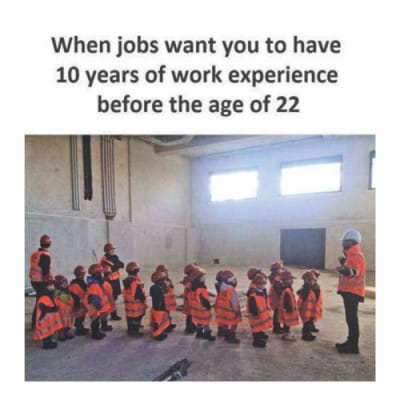Developing Skills in University

You arrive at Subarnabhumi Airport in Bangkok. After passing immigration you search for the taxi stand. While waiting, you feel hungry. Three vendors are selling pizza. Which vendor do you buy from? You don't know the pizza sellers, and the pizza sellers don't know you. But you want a pizza. All three vendors are calling. What do you do?
One of the vendors is selling an international brand and the others, local brands. What would you do? If you've guessed as I have, you would go for the known brand. The vendor with the international brand sent you a 'signal' you believed to be true.
In 1973, Michael Spence used this background to develop his signaling model. For this, he received the Nobel in Economics alongside George Akerloff and Joseph Stiglitz in 2001. Like the example above, employers don't know how good or bad a student is. Only the student knows their true quality. However, the students are competing for a job where the number of applicants are more than the number of jobs available. Thus it is in the interest of students to send a 'signal' to employers about their quality. If the 'signal' is credible like the international brand above, employers then 'screen' applicants and call them for an interview. Spence used education or degree achieved as a signal. This makes sense.
Imagine you're an employer going through a box of applications. The first things you would see is the name of the institute, name of the department or programme, and the finally result or CGPA obtained of each candidate. This was the standard procedure of selecting (screening) applicants for an interview. It's been generally accepted that universities provide skills that are useful in labour markets. Thus the more prestigious the university, department or programme, the more credible would be the CGPA of the student. That, however, has changed today.
Tim Berners Lee, a British scientist who created what we now know as the World Wide Web, gifted his creation to the world on Christmas day, 1992. WWW websites had a tremendous impact on labour markets. Soon industries started to emerge that were based on different skills. Meanwhile, universities all over the world failed to keep up with this change, or didn't notice the change at all. Universities kept teaching the way they did for decades or even centuries. Soon, what students learned in universities was no longer a good 'signal' of their actual 'productivity'.
CGPA indicates performance in the university in different departments and different disciplines. This performance may not be suitable for all types of employments. Even if they want to, universities aren't going to change overnight to adapt to skills development in changing labour markets. However, students can do something. Let's go back to the examples above.

The employer doesn't know about your true abilities. That information is 'private'. Only you know it. Employers are now asking for job-experience from candidates who have just graduated. If universities aren't going to provide that platform, then why don't you find a platform where you can gain experience during may be five years in university?
If you're good at programming, learn software and work as an apprentice in an office. You'll get exposure to the latest research and gain experience. If you're good at music, try to perform at a radio or TV channel. If you live outside Dhaka, then why not open a YouTube channel and create your own brand? The example list can go on and on. If you don't develop your skills while at university, you may find, some 'back-benchers' who did, will be providing skill experiences at employment outlets that will soon be at the frontier.
It's useful to have a good result. If that good result isn't useful in the next stage of life in the workplace, then the sooner you start preparing yourself while at university, the better. Five years at university is an opportunity to study and also develop skills that will be useful later.
Asrar Chowdhury teaches economic theory and game theory in the classroom. Outside he listens to music and BBC Radio; follows Test Cricket; and plays the flute. He can be reached at: [email protected] or [email protected].

 For all latest news, follow The Daily Star's Google News channel.
For all latest news, follow The Daily Star's Google News channel. 



Comments